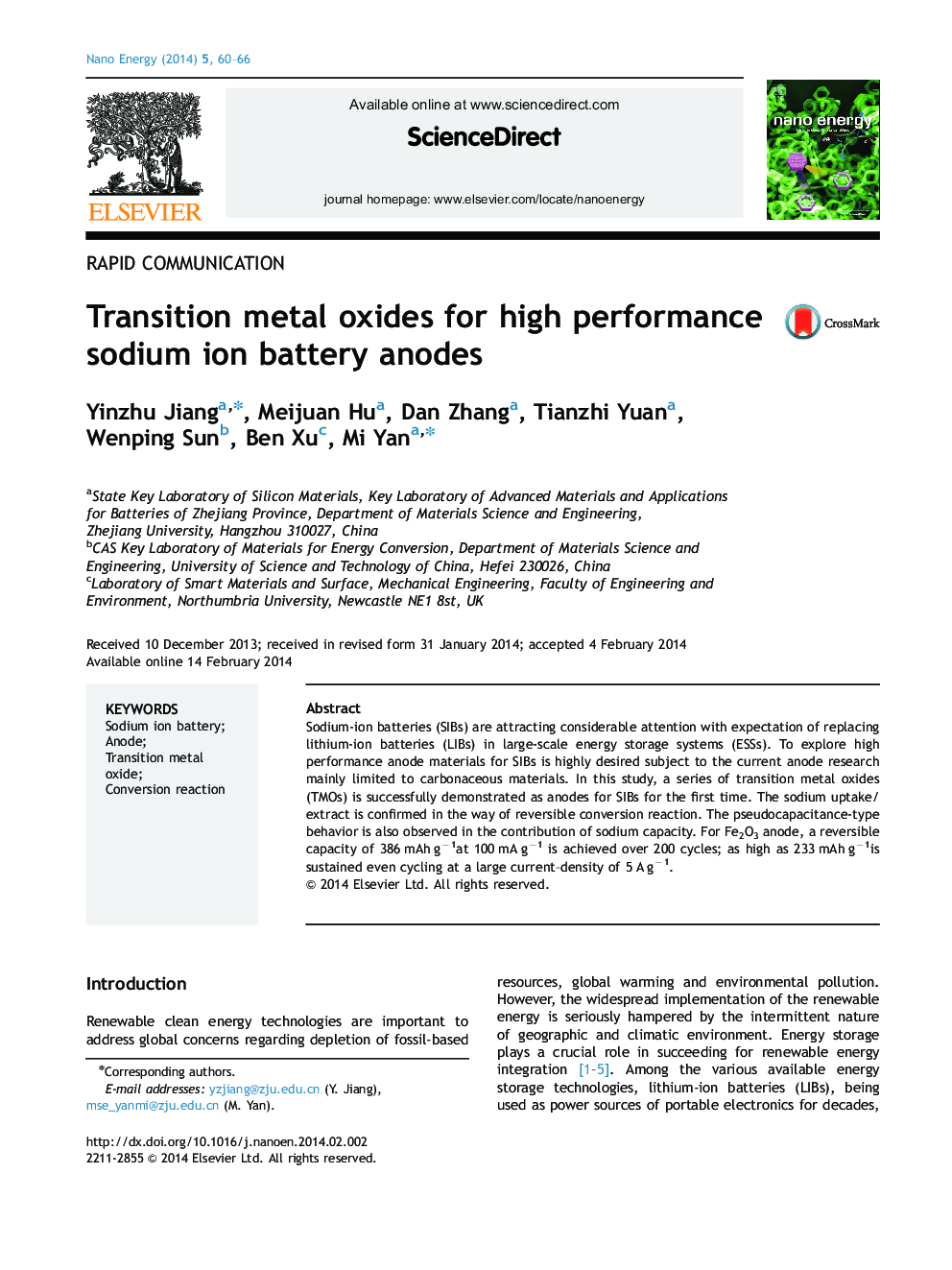| Article ID | Journal | Published Year | Pages | File Type |
|---|---|---|---|---|
| 1557739 | Nano Energy | 2014 | 7 Pages |
•A series of transition metal oxides is successfully demonstrated as anodes for sodium ion batteries.•The sodium uptake/extract is confirmed in the way of reversible conversion reaction.•The pseudocapacitance-type behavior is observed in the contribution of sodium capacity.•For Fe2O3 anode, a reversible capacity of 386 mAh g−1 at 100 mA g−1 is achieved over 200 cycles.•As high as 233 mAh g−1 is sustained even cycling at a large current–density of 5 A g−1.
Sodium-ion batteries (SIBs) are attracting considerable attention with expectation of replacing lithium-ion batteries (LIBs) in large-scale energy storage systems (ESSs). To explore high performance anode materials for SIBs is highly desired subject to the current anode research mainly limited to carbonaceous materials. In this study, a series of transition metal oxides (TMOs) is successfully demonstrated as anodes for SIBs for the first time. The sodium uptake/extract is confirmed in the way of reversible conversion reaction. The pseudocapacitance-type behavior is also observed in the contribution of sodium capacity. For Fe2O3 anode, a reversible capacity of 386 mAh g−1at 100 mA g−1 is achieved over 200 cycles; as high as 233 mAh g−1is sustained even cycling at a large current–density of 5 A g−1.
Graphical abstractFigure optionsDownload full-size imageDownload as PowerPoint slide
